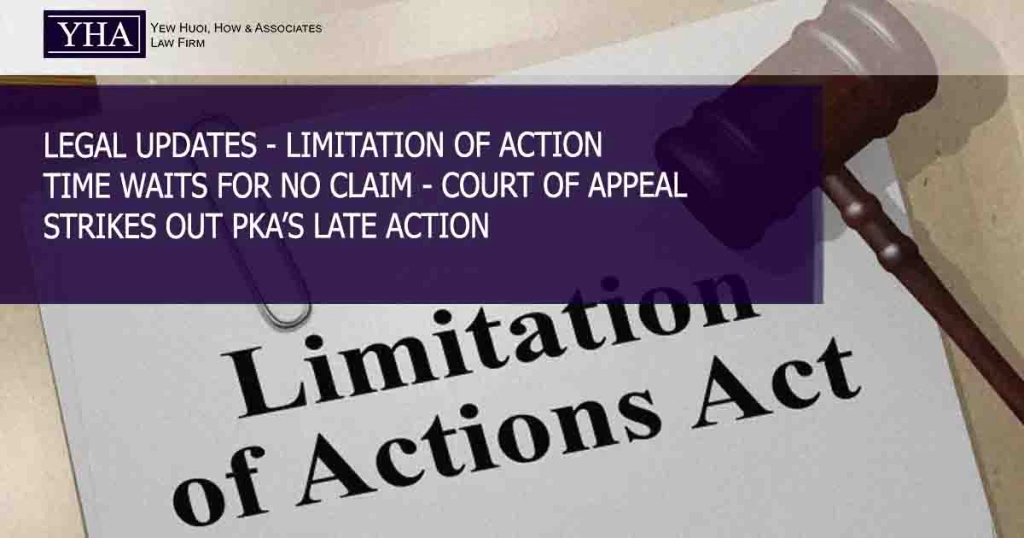1. Summary and Facts
In Kuala Dimensi Sdn Bhd v Port Kelang Authority [2025] 2 MLJ 238, the appeal arose from an application by Kuala Dimensi Sdn Bhd (“KDSB”) to strike out a claim filed by Port Kelang Authority (“PKA”) on grounds of limitation. PKA had brought a suit against KDSB for alleged breaches relating to agreements involving the development and sale of land. KDSB contended that PKA’s claim was time-barred, having been filed beyond the prescribed statutory limitation period. PKA argued that its claim was filed within the applicable limitation period, asserting that it had discovered the breaches only at a later date, thus invoking principles relating to the postponement of limitation periods. The High Court initially dismissed KDSB’s application to strike out PKA’s claim, prompting KDSB to appeal.
2. Legal Issues
• Whether PKA’s claims against KDSB were statute-barred under the Limitation Act 1953.
• Whether the postponement of limitation under section 29 of the Limitation Act 1953 applied, considering PKA’s contention of late discovery of the breaches.
• Whether the High Court erred in dismissing KDSB’s striking-out application on limitation grounds.
3. Court’s Findings
• The Court of Appeal allowed KDSB’s appeal, reversing the High Court’s decision and ordering the striking out of PKA’s claim.
• The claims brought by PKA were statute-barred, having exceeded the six-year limitation period under section 6 of the Limitation Act 1953.
• The court held that section 29 (postponement of limitation) of the Limitation Act did not apply, as PKA failed to establish that it could not have discovered the alleged breaches earlier with reasonable diligence.
• The Court found that PKA had knowledge or ought reasonably to have had knowledge of the breaches earlier, and thus could not rely on the postponement of limitation. Consequently, the action was time-barred.
4. Practical Implications
This judgment provides clarity on limitation periods in civil claims and highlights the following implications:
• Parties must be vigilant in monitoring contractual obligations and assert claims promptly upon breach to avoid limitation issues.
• Claimants seeking to invoke section 29 (postponement of limitation) must demonstrate conclusively that they could not have reasonably discovered the breaches earlier.
• The decision reinforces the courts’ strict interpretation of limitation statutes, highlighting the necessity for claimants to act swiftly and diligently upon discovery or suspicion of contractual breaches.

